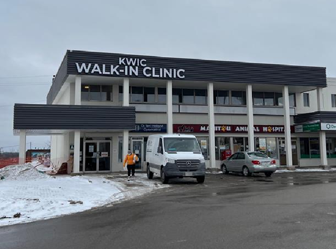



Osteoporosis is a bone disease characterized by low bone mass and deterioration of bone tissue, leading to fragile bones and an increased risk of fractures, especially in the hip, spine, and wrist. It often progresses silently, with no symptoms until a fracture occurs.
Osteoporosis occurs when the creation of new bone doesn’t keep up with the removal of old bone. This imbalance results in a decrease in bone density and strength. Common causes include hormonal changes, deficiency of calcium and vitamin D, and certain medications.
KWIC Walk-In Clinic is a renowned osteoporosis treatment in Kitchener. With years of experience, We have helped numerous patients manage their condition and improve their quality of life.
KWIC Walk-In Clinic offers a comprehensive approach to osteoporosis diagnosis in Kitchener. We conduct a thorough evaluation to assess the severity of the condition and create personalized treatment plans tailored to each patient’s needs.
Osteoporosis is a common but manageable condition that affects bone health. With the right treatment and lifestyle changes, individuals can reduce their risk of fractures and improve their quality of life. KWIC Walk-In Clinic’s expertise in osteoporosis treatment makes him a trusted choice for patients seeking effective care in Kitchener.
Symptoms of Osteoporosis
Early in the process of bone loss, there are often no symptoms. The following indications and symptoms, however, may appear once osteoporosis has damaged your bones:
- Back discomfort brought on by a broken or collapsing vertebra
- Height loss over time
- A hunched-over stance
- A bone that fractures a lot more quickly than is normal
Osteoporosis Diagnosis in Kitchener
Bone Density Test: The most common way to diagnose osteoporosis is through a bone density test, which measures the mineral content of your bones, usually in the hip, spine, and wrist.
Other Tests: Other tests, such as blood tests and X-rays, may also be done to rule out other conditions and assess your overall bone health.
Treatment Options
Medications: Several medications are available to slow bone loss and increase bone density. These include bisphosphonates, hormone-related therapy, and denosumab.
Lifestyle Changes: Lifestyle changes, including regular exercise, a healthy diet rich in calcium and vitamin D, and avoiding smoking and excessive alcohol, can help manage osteoporosis.
Surgical Options: In severe cases, surgery may be necessary to repair fractures or correct bone deformities.